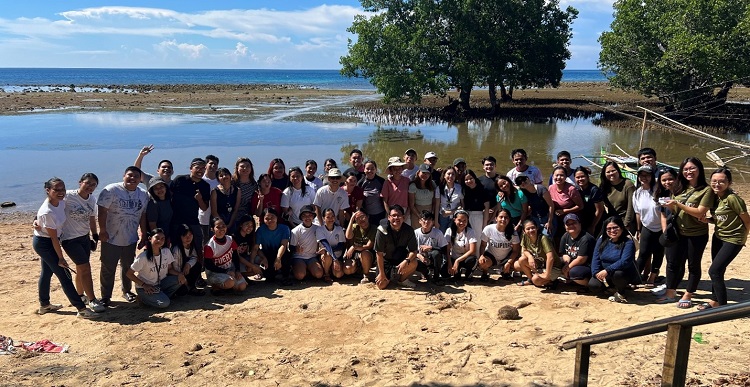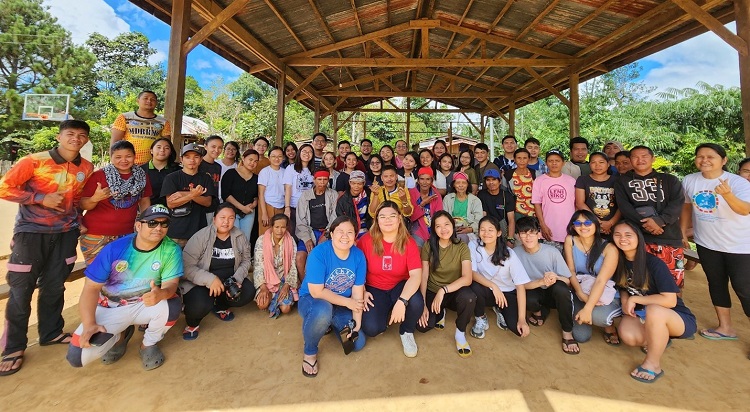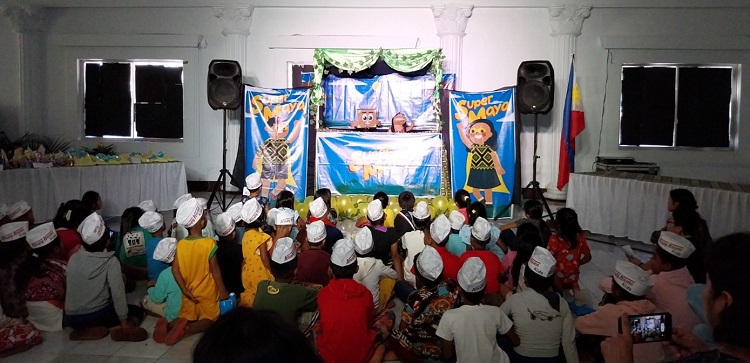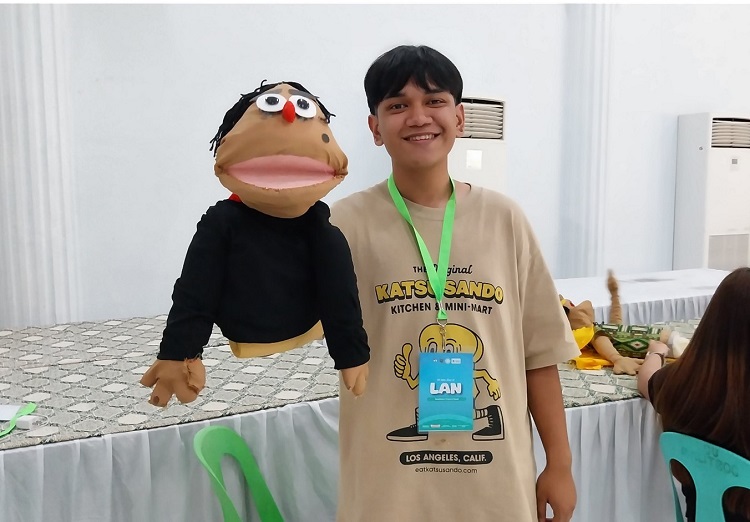Engaging in immersive experiences beyond the confines of classrooms, students from various academic programs recently undertook community immersions, fostering authentic connections and applying their acquired knowledge to social situations in local communities in Misamis Oriental and Bukidnon.

In Photo: Biology students conduct coastal biological resource assessment in Brgy. Mauswagon, Laguindingan, Misamis Oriental
Fourt year Marine Biology students undertook a comprehensive three-day immersion in Brgy Baybay, Alubijid, Misamis Oriental. Under the guidance of faculty members Anne Sherlyn Bungcasan, Karen Magahin, Rex Abao Jr, Jesse Galera, and Julie Ann Butron, these students engaged in a study of marine ecosystems. Their engagement involved analyzing marine flora, coral reefs, mangroves, and planktons—an essential endeavor aimed at comprehensively assessing the overall state of the local marine ecosystem. Drawing upon the theories learned and skills acquired in the classroom, they actively contributed to evaluating diverse marine resources and aiding in the enhancement of the coastal resource management plan of the locality.

In Photo: Biology Students with Malitbog LGU Personnel and Members of the Nabunkatol Tribe of Brgy. Impahanong, Malitbog, Bukidnon
Meanwhile, third-year Biology students embarked on a different immersion experience, journeying to Barangay Impahanong in Malitbog Bukidnon. Living among the Nabunkatol Tribe, a Higaonon Tribal Community, these students, accompanied by faculty Carl Ian Hallasgo, Reggie Ladera, and Bryan Dulongan, participated in rituals and cultural practices led by Datu Leo Lirawan, Head of Malitbog’s Ancestral Domain Management Office. As they trekked along the mountain's foothills and the river, their focus lay on evaluating diverse biological resources crucial for shaping and crafting local government policies aimed at safeguarding these invaluable natural ecosystems.

In Photo: Children are all eyes and ears on the DevCom puppet show, "Super Maya".
Third-year Development Communication students, with the guidance of their faculty, Jerome Torres, had an overnight immersion focused on preparing and delivering their original puppet show named "Super Maya." Designed entirely by the students, the production featured puppets that brought to life the story of “Maya” and her trio of companions, promoting themes centered on diversity, culture, and compassion. Garnering an audience of over 100 attendees, including children from the Nabunkatol Higaonon community, the event coincided with the celebration of Children’s Month. Supported by the LGU's Municipal Social Welfare and Development Office and the renowned Krispy Kreme brand, this engagement vividly demonstrated the students' dedication to advocating for cultural preservation and values education.

In Photo: A DevCom student poses with his puppet. He plays one of the characters in the show.
These immersive experiences aren't mere field trips; they embody the essence of service-learning. By interacting directly with communities, students grasp the complexities of real-world scenarios, learning from community dynamics, and applying their acquired skills to societal situations.
The Marine Biology students' assessment of marine resources contributes tangibly to the community's coastal resource management plan, facilitating sustainable practices. For the Biology students, their interaction with the Nabunkatol Tribe provides critical data for policy formulation, highlighting the importance of respecting indigenous cultures and protecting natural ecosystems. Additionally, the Development Communication students' puppet show serves as a medium for cultural celebration and education, advocating for diversity and compassion while engaging the community in a meaningful narrative.
These immersions underscore the significance of firsthand experiences in learning. By actively participating in the communities they serve, students gain invaluable insights and skills while making tangible contributions to societal and environmental well-being. Through such engagements, service-learning transcends theory, fostering a generation of socially conscious and proactive leaders ready to address real-world challenges.